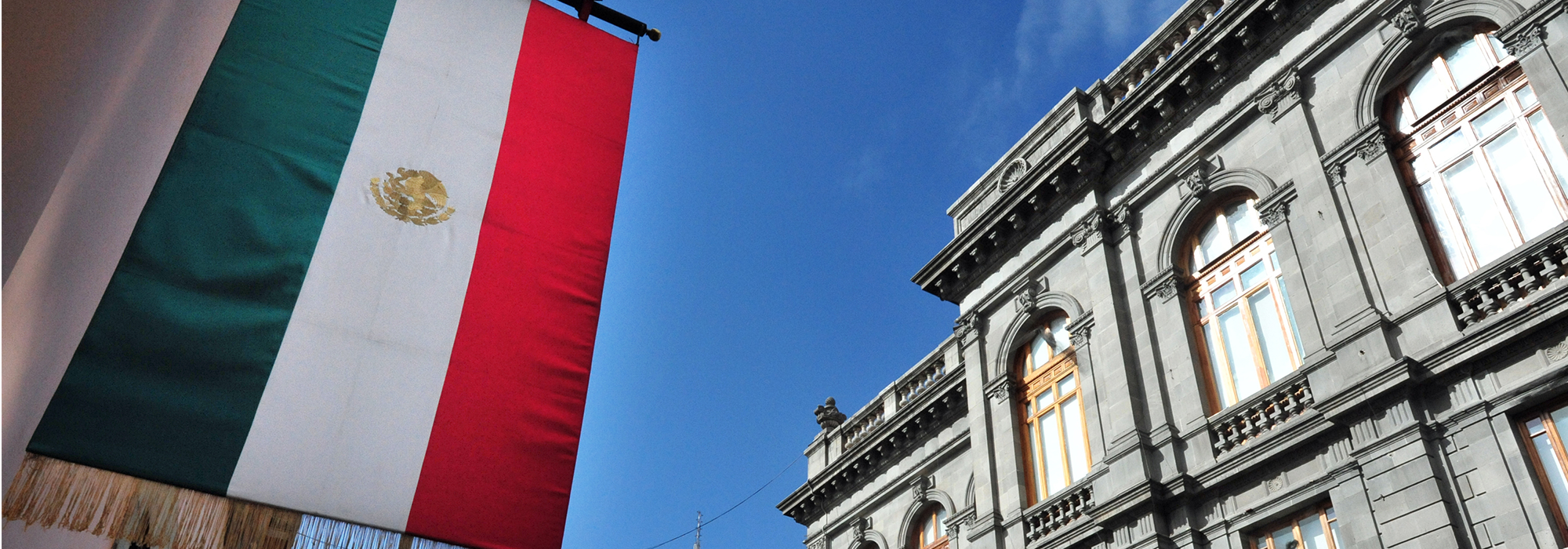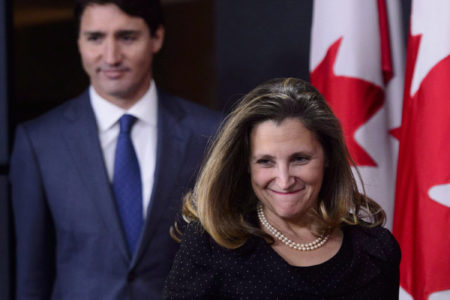
During Canada’s 2015 federal election, the Liberal Party of Canada, led by Justin Trudeau, promised that if they were elected government that Canada would lift its visa requirement on Mexico. This campaign promise is reflected in now Prime Minister Trudeau’s mandate letter to John McCallum, the Minister of Immigration, Refugees, and Citizenship, which states that one of Minister McCallum’s top priorities will be to lift the visa requirement on Mexico.
The decision by the previous Conservative Government of Canada in 2009 to implement a visa requirement for Mexican citizens was extremely controversial. It is difficult to determine whether it was a good public policy decision because of the numerous factors involved, each with corresponding benefits and costs. It is clear, however, that the implementation of the visa requirement did achieve the government’s primary objective, which was to dramatically reduce refugee claims from Mexican citizens in Canada. However, subsequent changes to Canada’s immigration refugee system, likely mean that the visa requirement is no longer necessary to achieve this objective.
The Visa Requirement
Canada imposed a visa requirement on Mexican citizens on July 14, 2009. The Canadian government stated that it did so to dramatically reduce the number of unfounded refugee claims made by Mexican nationals due to their visa-free access to Canada. Mexico was at the time the top source country for asylum claimants in Canada, and had been so since 2005.
The imposition of the visa requirement imposed a significant burden on Mexican citizens wishing to travel to Canada. Instead of being able to simply board an airplane and travel to Canada, Mexican citizens now prior to travel have to apply for a temporary resident visa at a Canadian consulate, or online. In addition to completing numerous forms, as of writing Mexican nationals are required to provide proof of financial support, including copies of bank statements for three months, employment verification, and other proof of connections to Mexico. Where a Canadian invitee will be paying for the trip, that individual is required to provide proof of funds.
Many individuals and organizations, including the Canadian government, predicted that the imposition of the visa requirement would result in a dramatic decrease in the number of Mexicans who travelled to Canada. In 2008, there were over 270,000 entries by Mexican citizens into Canada. When the Canadian government imposed the visa requirement, it stated that it anticipated that approximately 150,000 Mexican citizens would apply for temporary resident visas annually. According to the Tourism Industry Association of Canada (the “TIAC”), the number of Mexicans visiting Canada plummeted by 50% after the implementation of the visa requirement, although the number of Mexicans visiting Canada has now reached pre-2009 levels. The TIAC estimates that an additional 320,000 Mexicans would have visited Canada and spent over $465,000,000.00 from 2009-2014 were it not for the visa requirement. The impact on trade has been forecasted to be in the billions.
However, if the Government of Canada’s primary objective in imposing the visa requirement was to reduce the number of Mexican refugee claims in Canada, then the decision was a resounding success. In 2009 there were 7,592 asylum claims from Mexican nationals. By 2012, this number had fallen to 321. Mexico during this period went from being the highest source country for asylum claims in Canada to the 22nd highest country in 2012. At the same time, the percentage of Mexican claims that were approved increased from 11% in 2010 to around 20% in 2013.
CIC data shows:
|
Year |
Intake | Finalizations | Acceptance Rate (%) | Rejection Rate (%) | Abandon Rate (%) |
Withdrawn / Other Rate (%) |
|
2007 |
7,162 | 3,662 | 11 | 59 | 8 | 23 |
|
2008 |
9,472 | 5,707 | 11 | 60 | 6 | 24 |
|
2009 |
7,592 | 6,097 | 8 | 56 | 7 | 29 |
|
2010 |
1,202 | 5,880 | 11 | 59 | 6 |
24 |
| 2011 | 651 | 6,099 | 17 | 69 | 5 |
10 |
| 2012 | 321 | 3,041 | 19 | 71 | 4 |
7 |
| 2013 (Jan – Jun) | 36 | 682 | 20 | 67 | 5 |
9 |
It is important to note that CIC data also shows that 57% of Mexican asylum claims made in the first quarter of 2010-2012 were made by individuals who entered Canada prior to the visa imposition.
Indeed, based on the previous refugee acceptance rates prior to the imposition of the visa requirement for Mexicans, in June 2013 CIC estimated that without the visa requirement, Canada would have received an additional 19,895 asylum claimants from July 2009 through December 14th, 2012, of which 2,493 claims would have been accepted, 12,331 rejected, and 5,081 abandoned or withdrawn. The cost to Canada would have been immense.
When Minister McCallum lifts Canada’s visa requirement against Mexico there will likely be those who suggest that it was never necessary, or, as the Globe and Mail did in 2014, that it was other changes to Canada’s immigration and refugee system that actually caused the drop in Mexican asylum claims. These changes, however, happened after the steep decline occurred. Having said that, while a review of the above data makes it clear that it was the imposition of the visa requirement that led to the steep decline in Mexican refugee claims, the previous government’s subsequent changes will hopefully ensure that the lifting of the visa requirement does not cause the situation to revert back to what it was in 2008.
Changes to the Immigration and Refugee System
After the imposition of the visa requirement the Canadian government made several changes to Canada’s immigration and refugee system which will likely ensure that the number of unfounded asylum claims by Mexicans in Canada does not revert to 2008 levels. These are the decision to shorten the time that refugee claims make, the prohibition on submitting permanent residence applications based on humanitarian & compassionate grounds within one year of the refusal of a refugee claim, the designation of Mexico as a safe country of origin, and the upcoming implementation of the Electronic Travel Authorization.
On June 28, 2012, Bill C-31, the Protecting Canada’s Immigration Act, received Royal Assent. Prior to the implementation of Bill C-31, the average Mexican refugee claim that was not withdrawn or abandoned took over eighteen months to process. During this time the claimants would be allowed to work anywhere in Canada, and if their claim was refused they could submit an application for permanent resident status on humanitarian & compassionate grounds, citing their establishment in Canada as a positive factor in the application. As a result of Bill C-31, the amount of time that it took was reduced to sixty days. As well, most asylum seekers became prohibited from submitting humanitarian & compassionate permanent residence applications.
Then, on February 13, 2013, the Canadian government designated Mexico as being a safe country of origin. This designation further reduced the amount of time that it takes to process a Mexican refugee claim to 45 days for those who make a refugee claim at a port of entry, and 30 days after referral for those who make a claim at an inland immigration office. As well, Mexican refugee claimants became ineligible to apply for work permits. (The decision to designate Mexico as being a safe country was also controversial, and the Liberal government may eventually remove Mexico from the designated list. Prime Minister Trudeau’s mandate letter to Minister McCallum states that he is to “establish an expert human rights panel to help you determine designated countries of origin,” and it may mean that this is a hint that Mexico may soon be removed.)
Finally, as of March 15, 2016, most foreign nationals who are exempt from the requirement to obtain a temporary resident visa to enter Canada will be required to obtain an Electronic Travel Authorization before they travel to Canada by air. As such, even without the visa requirement, it will no longer be the case that Mexican nationals will simply be able to purchase tickets and board planes to travel to Canada. Rather, they will be unable to board commercial airlines to Canada unless the airlines first confirm that they have permission to enter Canada. Having said that, the requirements will be much less onerous than they are currently.
Although it is impossible to be 100% certain, the above changes should prevent a spike in the number of unfounded refugee claims by Mexican nationals in Canada when Canada lifts the visa requirement.
What About Brazil, Romania, and Bulgaria?
If Prime Minister Trudeau fulfils his campaign promise, his decision to lift the visa requirement against Mexico should not turn into a partisan affair. In fact, the previous Conservative Government of Canada’s 2015 Economic Action Plan, the Conservatives promised that in 2015-16 that Canada would lift the visa requirement against Mexico, Brazil, Romania, and Bulgaria.
Indeed, if Prime Minister only lifts the visa requirement against Mexico, and not against Brazil, Romania, and Bulgaria, the question should be why just Mexico.







